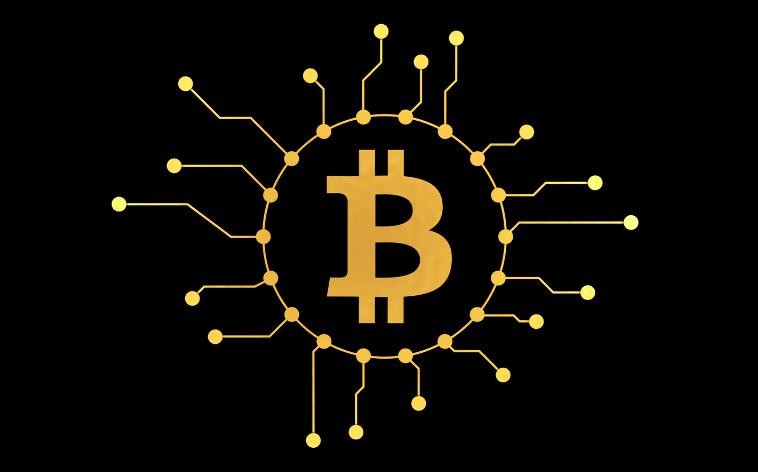
Navigating the Role Bitcoin of in Economic Development
In the dynamic landscape of finance, Bitcoin has emerged as a transformative force, challenging traditional notions of currency and ushering in a new era of digital transactions. This article delves into the multifaceted role of Bitcoin in economic development, examining its historical roots, impact on financial inclusion, store of value, cross-border transactions, regulatory challenges, technological innovations, risks, and the potential future it holds. For a better trading experience, use and visit a trusted trading platform like https://immediategp.com/.
Historical Context of Bitcoin
Bitcoin’s genesis, attributed to the pseudonymous Satoshi Nakamoto in 2009, marked a pivotal moment in the history of currency.
Nakamoto’s vision was to create a decentralized, peer-to-peer digital cash system, free from the control of central authorities. Over the years, Bitcoin has evolved from an experimental concept to a global phenomenon, attracting both praise and skepticism.
Role of Bitcoin in Economic Development
Bitcoin and Financial Inclusion
Addressing the unbanked and underbanked populations

Bitcoin’s decentralized nature has made financial services accessible to those excluded from traditional banking systems. Individuals without access to formal banking infrastructure can participate in the global economy, holding and transferring value without intermediaries.
Impact of Bitcoin on global remittances
Bitcoin’s borderless nature has significantly reduced the cost and time associated with cross-border remittances. By eliminating intermediaries, Bitcoin enables faster and more cost-effective transactions, empowering individuals to send and receive funds across the globe.
Case studies highlighting improved financial access
Countries like El Salvador have embraced Bitcoin as legal tender, aiming to enhance financial inclusion. Such case studies provide valuable insights into the tangible benefits and challenges associated with integrating Bitcoin into mainstream economic systems.
Bitcoin as a Store of Value
Comparisons with traditional stores of value

Bitcoin’s limited supply of 21 million coins has drawn comparisons with traditional stores of value like gold. The digital scarcity of Bitcoin positions it as a hedge against inflation, providing a potential alternative to traditional assets.
Bitcoin’s role in hedging against inflation
As central banks engage in unprecedented monetary policies, concerns about inflation have risen. Bitcoin’s deflationary design, coupled with its decentralized nature, has positioned it as a store of value that can potentially preserve wealth amid economic uncertainties.
Analyzing Bitcoin’s historical price trends
Examining Bitcoin’s historical price trends reveals periods of volatility but also showcases its resilience and long-term value appreciation. Understanding these trends is crucial for investors and policymakers evaluating the role of Bitcoin in economic development.
Bitcoin and Cross-Border Transactions
Advantages of Bitcoin in cross-border trade

Bitcoin’s decentralized and borderless nature simplifies cross-border transactions, reducing reliance on traditional banking systems and their associated delays and fees. This can lead to more efficient global trade and financial interactions.
Challenges and potential solutions for international transactions
While Bitcoin offers advantages in cross-border transactions, challenges such as price volatility and regulatory uncertainties persist. Collaborative efforts between governments, financial institutions, and the cryptocurrency community are essential to address these challenges and unlock the full potential of Bitcoin in international trade.
Role of Bitcoin in disrupting traditional banking systems
The decentralized nature of Bitcoin challenges the traditional banking paradigm, potentially reshaping the global financial landscape. Financial institutions are increasingly exploring blockchain technology and cryptocurrencies to enhance efficiency and reduce costs.
Regulatory Landscape and Challenges
Overview of global regulatory attitudes towards Bitcoin
The regulatory environment for Bitcoin varies globally, with some countries embracing it as a legitimate form of currency, while others approach it with caution. Regulatory clarity is crucial for fostering responsible innovation and protecting consumers.
Challenges faced by governments in regulating decentralized currencies

Governments grapple with the decentralized nature of Bitcoin, which poses challenges for traditional regulatory frameworks. Striking a balance between fostering innovation and mitigating risks is a delicate task for policymakers.
The balance between innovation and consumer protection
Regulators are tasked with finding a balance between encouraging innovation in the cryptocurrency space and ensuring robust consumer protection. Stricter regulations can provide a sense of security but may stifle innovation, emphasizing the need for a nuanced approach.
Technological Implications and Innovations
Blockchain technology beyond Bitcoin
The underlying technology of Bitcoin, blockchain, has far-reaching applications beyond cryptocurrency. Industries such as supply chain management, healthcare, and finance are exploring blockchain for its potential to enhance transparency, security, and efficiency.
Smart contracts and decentralized finance (DeFi)
Smart contracts, self-executing contracts with the terms of the agreement directly written into code, and decentralized finance (DeFi) platforms leverage blockchain to create a more accessible and inclusive financial ecosystem, potentially revolutionizing traditional financial services.
Future potential applications and innovations
As blockchain technology matures, its integration into various industries may lead to novel applications. From digital identity management to decentralized autonomous organizations (DAOs), the future holds exciting possibilities for technological innovations beyond Bitcoin.
Risks and Concerns Surrounding Bitcoin
Volatility and market risks

Bitcoin’s price volatility remains a significant concern for investors and policymakers. Understanding the factors contributing to this volatility is crucial for managing associated risks.
Security and fraud concerns
While the blockchain technology underlying Bitcoin is secure, the broader cryptocurrency ecosystem faces challenges related to hacking, fraud, and scams. Enhancing security measures and educating users are critical components in addressing these concerns.
Environmental impact and sustainability considerations
The energy-intensive process of Bitcoin mining has raised environmental concerns. Exploring sustainable mining practices and transitioning towards more eco-friendly consensus mechanisms are essential for mitigating Bitcoin’s environmental impact.
The Future of Bitcoin in Economic Development
Potential scenarios for Bitcoin’s role in the future economy
As technological advancements and regulatory frameworks evolve, Bitcoin’s role in the future economy could take various paths. Scenario planning can help stakeholders anticipate potential developments and prepare accordingly.
Integration of Bitcoin into mainstream financial systems
The integration of Bitcoin into mainstream financial systems requires collaboration between the cryptocurrency community, regulators, and traditional financial institutions. Establishing clear frameworks and standards is pivotal for fostering a symbiotic relationship.
Outlook for global economic development with Bitcoin

The global economic landscape stands at a crossroads, and Bitcoin’s role in shaping its future is undeniable. Evaluating its impact on economic development requires a comprehensive understanding of its benefits, risks, and potential contributions to a more inclusive and efficient financial system.
Conclusion
In conclusion, comprehending the multifaceted role of Bitcoin in economic development necessitates a thorough understanding of its historical roots, current utility, and future possibilities. Whether it’s addressing financial inclusion, acting as a resilient store of value, transforming cross-border transactions, or confronting regulatory challenges, Bitcoin’s influence is far-reaching.
As we navigate the complexities of this evolving financial landscape, fostering responsible engagement, making well-informed decisions, and encouraging collaborative efforts will undeniably mold the future dynamics between Bitcoin and global economic development. In light of these considerations, individuals are urged to explore forward-thinking solutions, such as the innovative approach to elevate their participation in the ever-evolving financial ecosystem.
Author Profile

Latest entries
 TechnologyMarch 31, 2025The Future of Text-to-Speech: Transforming Communication in Healthcare
TechnologyMarch 31, 2025The Future of Text-to-Speech: Transforming Communication in Healthcare TechnologyMarch 28, 2025Top-Rated Tools Every Modern Recruiter Needs in Their Toolkit
TechnologyMarch 28, 2025Top-Rated Tools Every Modern Recruiter Needs in Their Toolkit marketingMarch 21, 2025How Businesses Can Leverage YouTube Video Makers for Marketing & Ads?
marketingMarch 21, 2025How Businesses Can Leverage YouTube Video Makers for Marketing & Ads? Online BusinessMarch 21, 2025Feature Requests as a Growth Strategy: How User Insights Drive Product Innovation?
Online BusinessMarch 21, 2025Feature Requests as a Growth Strategy: How User Insights Drive Product Innovation?

